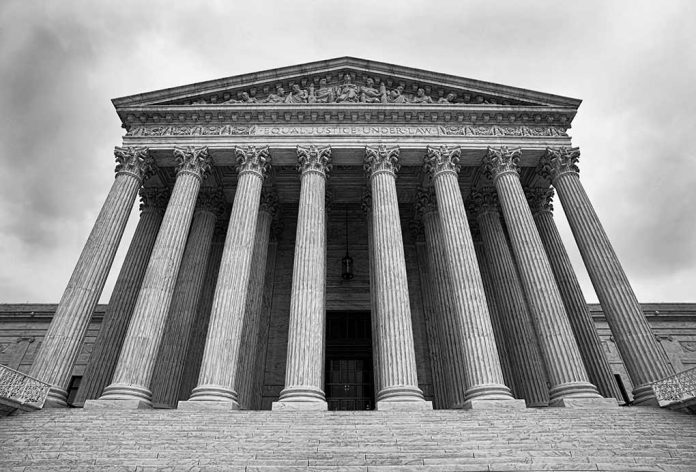
The Idaho House has sparked controversy by passing a resolution urging the Supreme Court to revisit their landmark 2015 ruling on same-sex marriage, Obergefell v. Hodges.
Key Takeaways
- Idaho House passed a resolution asking the Supreme Court to overturn Obergefell v. Hodges.
- Criticism stems from concerns about state bias and the exclusion of some communities.
- The resolution does not hold legal power but signals a persistent state-versus-federal debate.
- Obergefell v. Hodges was previously decided 5-4, but the current Court has a 6-3 conservative majority.
- Cultural and political tensions continue, with House Minority Leader Ilana Rubel opposing the resolution.
The Idaho Resolution
Idaho lawmakers have approved a resolution calling on the U.S. Supreme Court to overturn Obergefell v. Hodges, the ruling that legalized same-sex marriage nationwide. It follows the 2022 decision to overturn Roe v. Wade, raising concerns about other rights being at risk. The resolution argues that court rulings do not equate to law and suggests marriage should be defined traditionally. The resolution passed with a 46-24 vote, highlighting the ongoing debate over state rights.
The initiative reflects a push by Republican lawmakers who argue that the authority to define marriage should reside with the states. State Representative Heather Scott bolstered this view by stating, “The federal government does not have the authority to just create rights… Just because you may agree with their decision and how they define marriage as a right, I would ask you to substitute any other issue and ask yourself, ‘Do I want the federal government creating rights for us, for Idahoans?'”
Opposition and Criticism
Critics within the Idaho House, including 24 Democrat and 15 Republican members, opposed the measure. House Minority Leader Ilana Rubel, a strong critic, voiced concerns about its divisive nature: “The Supreme Court wisely recognized in the Obergefell decision that our Constitution guarantees the freedom to marry the person you love, and that fundamental right should not be subject to the anti-LGBTQ biases of a state legislature. The partner you choose is not the government’s choice nor should it be.”
Opponents argue that the resolution fosters exclusion and could lead to discrimination. Some draw historical parallels to segregation justifications used under state rights rhetoric. Gallup polling indicates 69% of Americans support same-sex marriage, with stark partisan divides. Critics worry about the implications for LGBTQ+ rights in the state if such state-led initiatives gain ground.
Next Steps and Implications
The resolution, known as House Joint Memorial 1, now advances to the Idaho Senate. Although it carries no legal weight, it symbolizes the Idaho Legislature’s rejection of the Supreme Court’s decision in Obergefell, urging a return to state-level definitions of marriage. Some legislative voices, including Rep. Heather Scott, argue that “defining marriage is a state issue as it is not enumerated in our federal constitution.”
Amid tensions, the move raises questions of state’s rights versus federal judiciary mandates. Critics highlight that while the resolution climbs political ranks, it risks amplifying state-versus-federal authority battles, all under the nationwide specter of evolving cultural norms and constitutional interpretations.
Sources:
- Supreme Court Asked to Overturn Gay Marriage – Newsweek
- Memorial targeting same-sex marriage in Idaho heads to House floor after passing committee
- Idaho House calls on U.S. Supreme Court to reverse same-sex marriage ruling
- Idaho House calls on Supreme Court to undo same-sex marriage ruling







